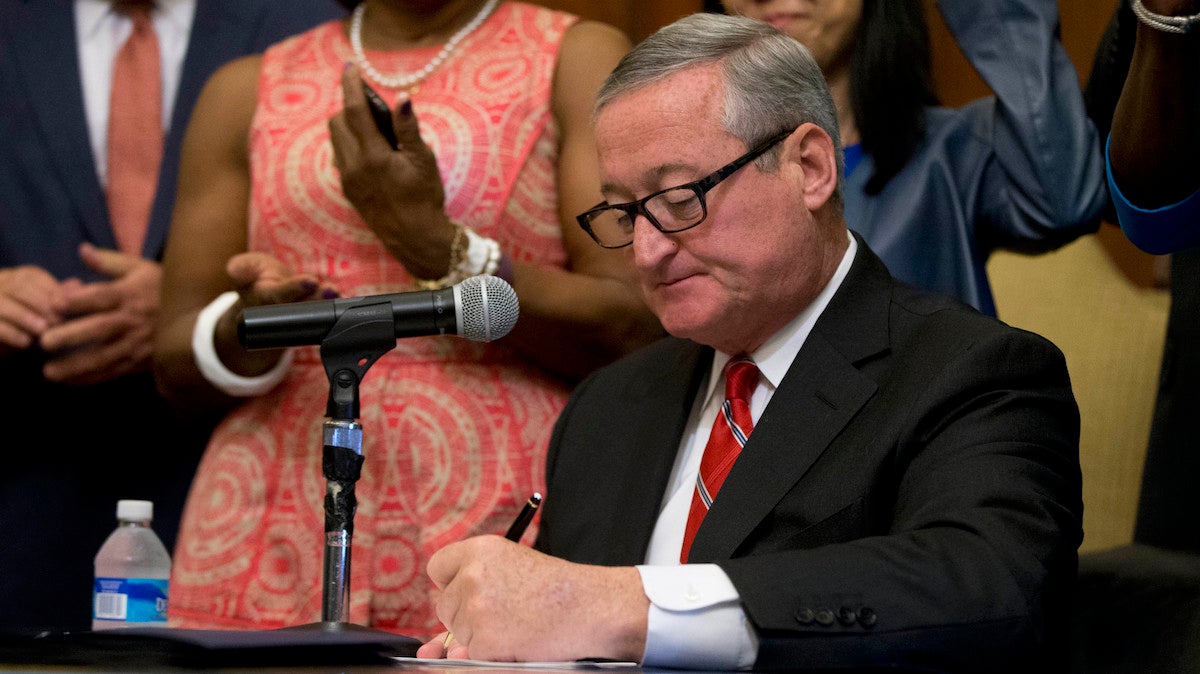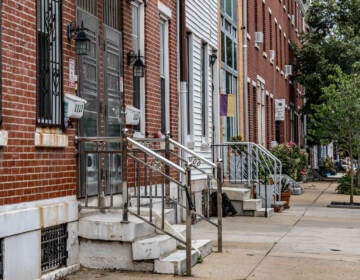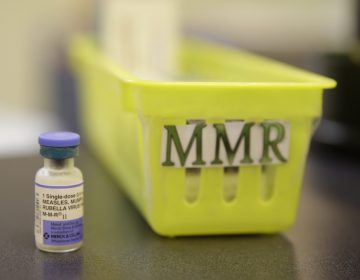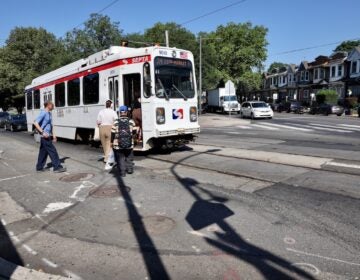Philly’s soda tax declared valid in major win for Kenney administration [updated]
Listen
Mayor Jim Kenney signs into law a 1.5 cent-per-ounce tax on sugary and diet beverages at City Hall in Philadelphia, Monday, June 20, 2016. The tax will be levied on distributors and is set to take effect Jan. 1. (AP Photo/Matt Rourke)
Philadelphia’s tax on sweetened drinks is legal, a state judge ruled Monday, delivering a significant triumph to Mayor Jim Kenney’s controversial law that has for months been under siege in court.
“It is a victory for Philadelphians, who have waited far too long for investment in their education system in their neighborhoods,” Kenney said of the tax, the cornerstone of his first year in office.
“I urge the soda industry to accept the judge’s ruling and do the right thing for the children of Philadelphia, many of whom struggle in the chilling grip of pervasive poverty.”
Common Pleas Judge Gary Glazer dismissed all of the arguments presented by attorneys for the American Beverage Association who sought to dismantle the soda tax by claiming it would unfairly hit lower-income consumers the hardest and duplicate the state sales tax.
“This court finds, as a matter of law, that the [Philadelphia beverage tax] is not duplicative of the Commonwealth’s Sales Use Tax,” Glazer wrote.
Philadelphia City Council passed the 1.5-cents-per-once levy on sweetened drinks by a 13-4 vote in June. The legislation followed millions of dollars spent on campaigning and advertising from both the beverage industry and supporters of the historic tax. Critics spent nearly five times as much as backers of the tax in efforts to defeat the proposal.
The $98 million a year expected to be generated from the new 1.5-cents-per-ounce tax will fund expanded pre-kindergarten throughout the city and other public initiatives. For a 12 ounce can of soda, the tax would be 18 cents. For a 2-liter bottle of soda the tax would be about $1.
The tax will be levied beginning Jan. 1 on distributors of sweetened beverages, not on consumers at the time of purchase. That distinction proved key in Glazer’s dismissing the beverage industry’s challenges.
“That’s something that the court obviously seized on, because it’s of legal significance,” City Solicitor Sozi Tulante said of taxing distributors.
The decision means more students will have the opportunity to boost early childhood education, something that’s critical in Philadelphia, the poorest big city in the country, said Kenney. Furthermore, the mayor said parks, recreation centers and libraries will be repaired sooner.
“Our kids can’t wait, they’ve waited too many generations for this,” he said. “I would hope that the soda folks would understand how important this is to our children’s future and our city’s future and not proceed” with an appeal.
Already, the city has announced the creation 2,000 new high-quality pre-K seats expected to be funded with money from the city’s sweetened beverage tax. By 2021, the city-funded plan is hoping to have 6,500 seats. Families of any income level can apply, but the new seats are giving priority to applicants in high-poverty areas, where early childhood education opportunities are scarce.
A spokesman for Philadelphians Against the Grocery Tax Coalition, which was formed to oppose Kenney’s tax, said his group is not hostile to the idea of expanded pre-kindergarten in general, but it is against the specifics of this plan.
“The city is failing to collect hundreds of millions of dollars in taxes,” said Anthony Campisi, spokesman for the coalition. “So it’s difficult to swallow the idea that the only way to provide additional services is to increase taxes when there’s so much uncollected revenue out there.”
Thousands of residents and businesses have joined together to push back against the tax, which he contends “unfairly targets working families and small businesses.”
“Philadelphia families will be shocked in January when prices jump on more than 1,000 common beverages, including teas, soft drinks, juice drinks and no-calorie and low-calorie options,” Campisi said. “It will also become more expensive to see a movie, eat at a restaurant or attend a ballgame.”
Even before the lawsuit was filed in September, the city has argued that it’s up to distributors of soda and other sweet drinks to pass off some — or all — of the tax onto consumers, and, if they choose to, that does not make it a de facto sales tax. On Monday, Glazer agreed.
Glazer also threw out the beverage industry’s claim that the tax is illegal because it would subject recipients of SNAP benefits, also known as food stamps, to the tax. By law, food stamp purchases must be tax-free. Yet Glazer again underscored that since the soda tax falls on distributors, that argument falls apart.
In Berkeley, California, which also has a tax on sugary drinks, studies have shown that distributors passed on between 30 and 70 percent of the tax onto consumers.
“What is determinative is not how the [soda tax] operates, not what private actors will do in response to the tax to offset the burden of the tax or other post-tax economic transactions,” Glazer wrote.
In November, the Pennsylvania Supreme Court denied the beverage industry’s emergency application for the high court to immediately consider whether the tax is constitutional.
That said, the justices could still eventually hear the matter, but it first must go to Commonwealth Court in Harrisburg, where attorneys for the beverage industry say they will now be appealing.
And since the tax begins collecting in a matter of weeks, the legal path forward for opponents of the tax has become more complicated. But experts say there may still be a way to challenge the tax.
“The fact that the tax will start to be collected will have little impact on how the Commonwealth Court will view its merits,” said tax attorney Jim Malone, who is not involved in the litigation.
“It might have an impact on the remedy, as an appellate court could simply stop collections if it concluded the tax was illegal, or it might also permit a refund.”
WHYY is your source for fact-based, in-depth journalism and information. As a nonprofit organization, we rely on financial support from readers like you. Please give today.




